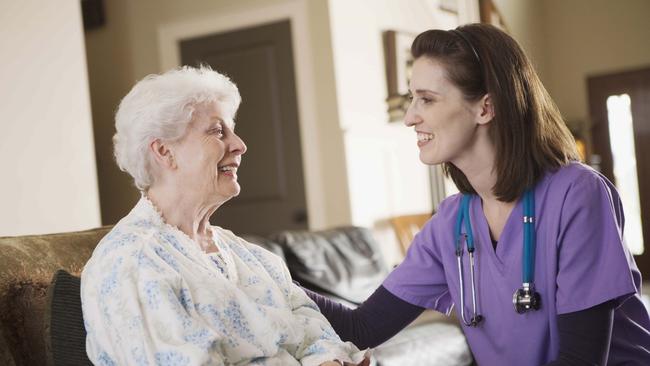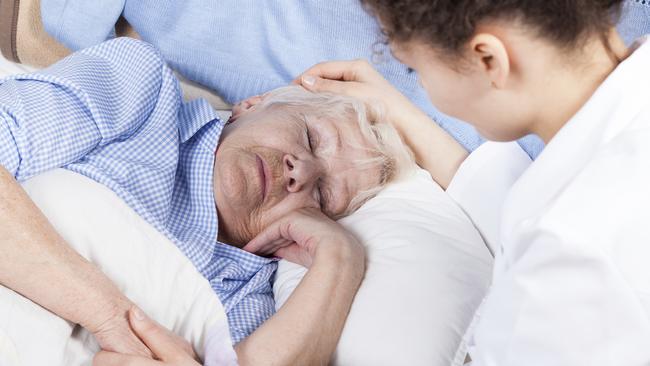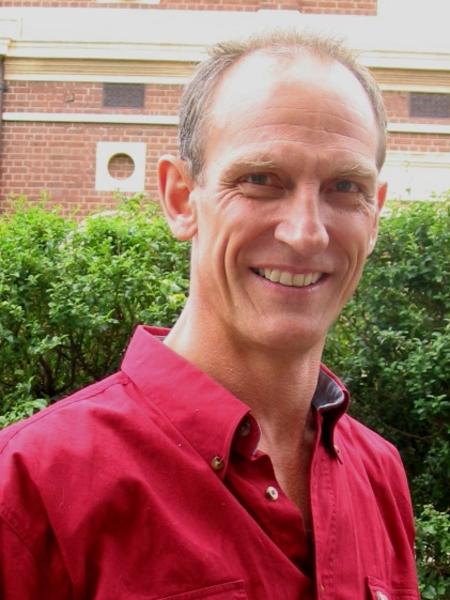GPs best placed to make life and death decisions: Nick Carr
PROPOSED voluntary assisted dying legislation makes many GPs nervous. But they’re well placed to make life and death decisions, writes Nick Carr.
Opinion
Don't miss out on the headlines from Opinion. Followed categories will be added to My News.
ROSE has end-stage cancer, is bed-bound, in pain, developing pressure sores and has, at most, weeks to live
There is no prospect of recovery and she would like the choice to end her life her way, at a time of her own choosing.
With the new voluntary assisted dying legislation now before the Victorian parliament, a doctor will be required to state that Rose is of sound mind to make that decision.
In legal terms, it is called having capacity.
Capacity requires that the person has the cognitive ability to comprehend, remember and consider rationally the issues involved in decision-making.
Clearly, that is not a simple, fixed or objective measure, and is hugely context-dependent.
Someone with an acquired brain injury may be competent — have capacity — to choose a loaf of bread and hand over the correct money, but not have capacity to weigh up the pros and cons of a complex medical procedure.

Imagine now that Rose, in the initial scenario, is the one with the brain injury. Who should assess whether she has the capacity to decide about her end-of-life care?
The first person many people will approach will be their regular general practitioner, their GP.
Concerns about whether we GPs are the right people to make this decision have been raised, including by GPs, themselves.
There’s something about the law that seems to make us GPs nervous. Apart from that lecture in third-year medical school — I did go to that one, didn’t I? — we have no specific training in the law.
But we make legal decisions all the time; after all, every prescription and medical certificate is a legal document.

Consider these examples.
A 53-year-old man with intellectual disability and schizophrenia wants to make a will — or rather, is brought in by a relative who says that he wants to make a will. Is he mentally fit to sign? Is he possibly being coerced?
A farmer with a history of depression wants a gun licence to cull the roos. Oh, and he’s on long-term WorkCover for a severe head injury that left him with significant cognitive deficits. Is he suitable for the licence?
Those are real-life examples of the kinds of issues that GPs deal with on a regular basis.
What they have in common is that someone, in this case the GP, is being asked to give a professional opinion about the person’s mental fitness, to sign a will or hold a gun licence, or, in Rose’s case, to end her life at her own choosing. They are questions of capacity.

Certain principles apply when assessing capacity:
THE default position should be a presumption of capacity unless proved otherwise. In other words, when there is doubt, the onus is to prove that someone does indeed lack capacity;
CAPACITY can fluctuate, for example because of medication, or good day/bad day variations, so it may need to be assessed more than once; and
WHAT might seem a bad decision, or one we don’t agree with, does not in itself mean someone lacks capacity. We all know people who undoubtedly have capacity but who make appalling choices — which they are, and should be, free to do.
There is one tool available to GPs that is not available to most others — our knowledge of our patients over a long period of time.
Someone considering VAD is likely to be older and have had significant medical problems and to have had regular contact with their GP. I have many older patients who have expressed very clear views about their end-of-life care. I know their frailties and foibles and I mostly know whether they are competent to make decisions about their care. If I’m unsure, I can perform some simple tests. If I’m still not sure, there are others to whom I can refer the patient for a second opinion.
GPs may not be experts at the law, but we do know our patients. In addition, GPs who choose to provide VAD opinions will have to have completed specified training, including in assessing decision-making capacity.
And as for Rose (whose name has been changed) — well, sadly, any VAD laws will be too late for her.
Nick Carr is a general practitioner in St Kilda


